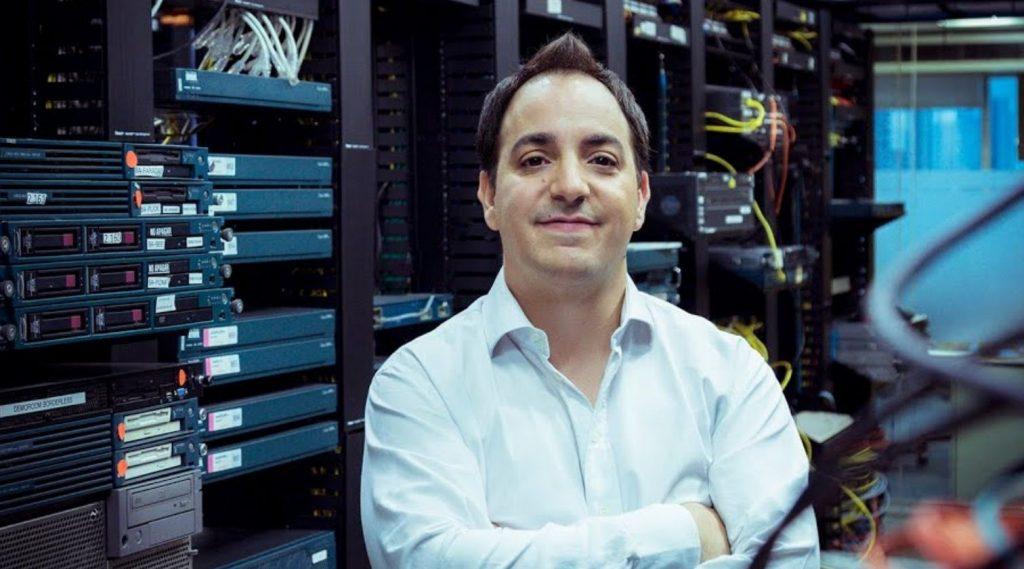RIO DE JANEIRO, BRAZIL – The Argentine cybersecurity company VU inaugurated this week its offices in Montevideo, from where it will seek to reinforce its operations in Uruguay and, at the same time, set up a regional headquarters.
“We have been betting on Uruguay for years. This inauguration allows us to continue boosting the local and Latin American ecosystem,” said the company’s founder and CEO, Sebastián Stranieri, who was selected among the 2021 Bloomberg Linea 100 Innovators of 2021. “This is a way to redouble the company’s bet in the country. It has to do with the fact that the community is very interested in exploring ties with cybersecurity,” he added.
“The benefits for technology companies that set up in Uruguay, among other aspects, due to the facilities for exporting intellectual property.” In his company’s case, the offices in Uruguay are “the main headquarters for the whole region,” said Stranieri.

VU has been operating in Uruguay since 2012 but is now looking to expand with the installation of its offices located in the Carrasco neighborhood. The company, focused on digital fraud prevention and identity protection, has already worked with Banco República, the country’s largest state-owned financial institution. It has also worked with Banco Itaú and the British Hospital, as Stranieri detailed last year in an interview with El Observador.
With an annual investment of more than US$4 million, the company is executing its plan for 2022 and 2023 to increase the money allocated by 50%. According to a statement issued on Wednesday, the goal is to transform the Montevideo offices “into a center of knowledge and experimentation in cybersecurity”.
According to company data, VU has more than 170 clients in 27 countries and protects more than 350 million users globally. In addition, “during 2020 it made its second round of investment, with outstanding participation such as BID Lab -with its first bet on cybersecurity-, Agrega Partners, NXTP, ArFintech, Redwood Ventures, Bridgeone, Globant, and Telefónica”. In total, it employs 200 people.
In an interview granted last year to Bloomberg Linea, Streneri had stated that the company was “halfway” to being a unicorn, although “very close” to other Argentine technology entrepreneurs who have already done so, such as Marcos Galperín of Mercado Libre or Martín Migoya of Globant. “I like to think that we are from a second or third generation of companies that will do something big,” he said in the interview.
TRENDS AND RECOMMENDATIONS
During the launch of the new offices in Uruguay, Stranieri also warned about cybersecurity trends, the most frequent attacks in recent times and made practical and everyday recommendations for users.
“The focus of attacks is the identity of people. Every time we talk about a threat, we talk about them accessing this or that social network account or trying to access your phone or bank account. That is an identity-oriented attack,” said the cybersecurity expert.
In that sense, the company’s CEO pointed out that, on the one hand, users must be attentive to the steps they take on the network. However, he emphasized that at the same time, “companies today must establish a policy to manage the confidentiality and privacy of user data”. “When you are a customer of an e-commerce company today, you have a password for one thing and another for something else. That means that your identity is fragmented internally within those companies. We understand that 2022 and 2023 will be a year of unifying these identities,” he exemplified.
As for recommendations, he listed three steps. First, do not reuse passwords. “Why? Because many times there are security breaches and in those breaches password databases are released. That makes it so someone else can go and try the same password on another social network account,” he explained. Secondly, he urged users to enable a second authentication factor in each option that allows it. And thirdly, to have a good backup of the information.
With information from Bloomberg Línea

